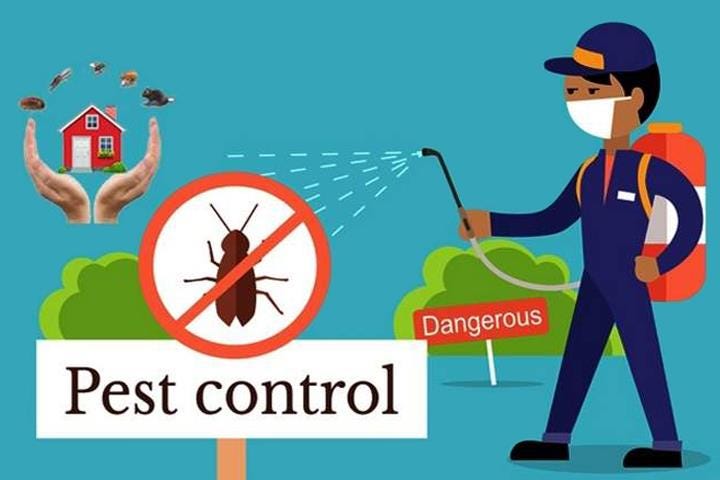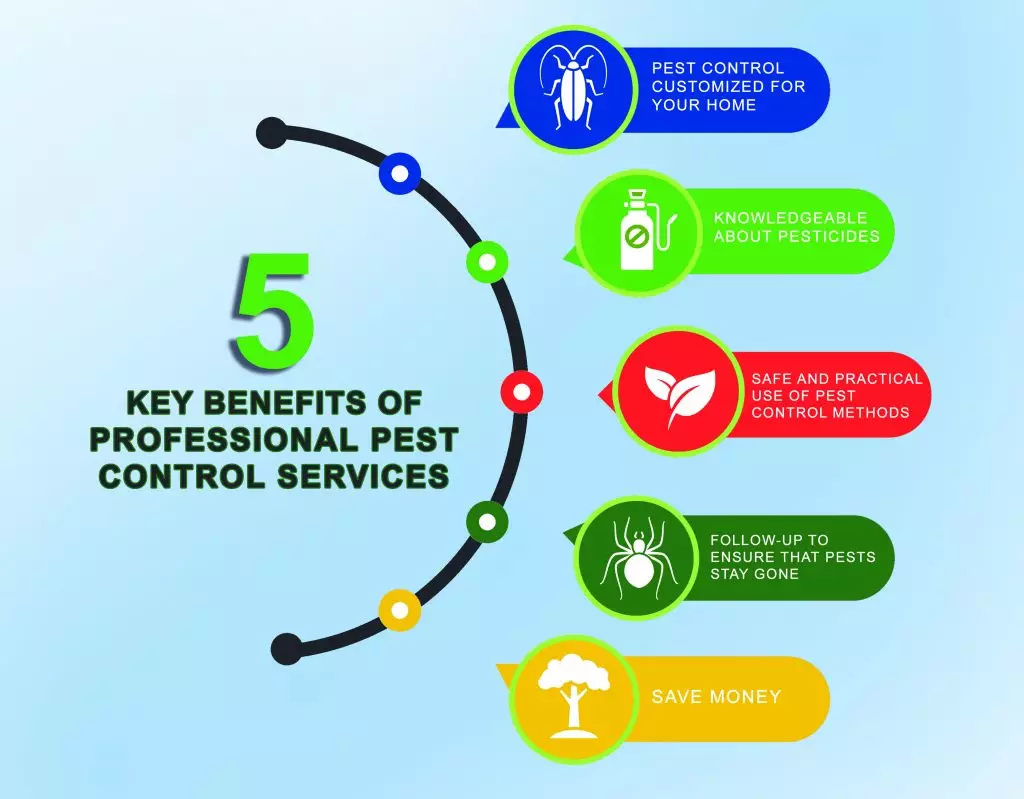Pest Control Clovis Solutions: Professional Solutions at Your Front door
Pest Control Clovis Solutions: Professional Solutions at Your Front door
Blog Article
Understanding the Numerous Techniques to Insect Control: A Comprehensive Overview

All-natural Insect Control Methods
Employing environment-friendly methods such as friend growing and biological pest control is vital for efficiently managing pests in agricultural setups. Buddy growing includes growing various plants in proximity to discourage parasites, improve nutrient uptake, and enhance overall plant wellness.
Biological parasite control entails introducing natural killers or microorganisms to control pest populaces. Ladybugs, for example, feed upon aphids, controlling their numbers without the demand for chemical pesticides. One more example is using Bacillus thuringiensis (Bt), a germs that targets particular insect pests while being harmless to human beings, pets, and helpful pests.
These eco-friendly techniques not just minimize the reliance on artificial chemicals but likewise aid protect biodiversity and dirt health and wellness. By incorporating all-natural pest control approaches right into agricultural techniques, farmers can accomplish lasting parasite management while lessening adverse influence on the setting.

Chemical Parasite Control Solutions
Along with natural parasite control approaches, the application of chemical parasite control remedies plays a considerable function in effectively handling pest populaces in farming atmospheres. Chemical parasite control solutions are formulated to target particular bugs that may cause extensive damage to crops. These solutions usually include artificial pesticides that are developed to remove bugs quickly and successfully.
Among the key advantages of chemical bug control options is their efficiency in regulating bug problems on a big scale. Farmers can use these options utilizing various techniques such as splashing, airing out, or seed treatment to secure their plants from harmful bugs, weeds, and conditions. Furthermore, chemical pest control remedies are relatively easy to use and can give quick outcomes, assisting farmers secure their yields and reduce economic losses.
However, it is important to utilize chemical pest control remedies deliberately to minimize potential unfavorable effect on the atmosphere, non-target organisms, and human health. Appropriate application strategies, adherence to security standards, and regular monitoring are critical to guarantee the responsible use of chemical insect control remedies in agricultural practices.
Biological Pest Control Approaches
Biological insect control approaches leverage all-natural killers or pathogens to handle bug populations in farming settings properly. One common organic control method is the introduction of natural adversaries, such as ladybugs or parasitic wasps, to target specific parasites.
An additional biological control method includes utilizing microorganisms like microorganisms, viruses, or fungis to contaminate and eliminate parasites. These microbial agents can be sprayed on plants or presented into the dirt to deal with different pests without hurting useful pests or various other wild animals. In addition, the usage of scents to interrupt the mating patterns of parasites is an additional effective organic control approach. By hindering their recreation, this approach assists to decrease insect populations without the requirement for chemical intervention. On the whole, organic pest control methods supply a sustainable and targeted solution to pest administration in farming.
Integrated Pest Administration (IPM)
Integrated Pest Management (IPM) is a detailed method that integrates various insect control approaches to efficiently take care of and lessen pest populaces in agricultural systems. IPM concentrates on long-lasting avoidance of bugs via a mix of biological, social, physical, and chemical control approaches. By incorporating these different approaches, IPM intends to decrease dependence on chemical pesticides, decrease environmental effect, and promote lasting parasite management practices.
One key check out this site facet of IPM is using organic controls such as all-natural killers, parasites, and microorganisms to control bug populaces. This method uses the power of nature to keep a balance in between parasites and their natural enemies without creating harm to the setting.
Additionally, IPM involves social practices like crop sanitation, habitat, and rotation control to create undesirable conditions for insects and disrupt their life process. Physical controls such as composts, traps, and barriers are likewise utilized to stop insect invasions.
Physical and mechanical Insect Control Techniques
Utilizing non-chemical techniques, such as physical and mechanical insect control methods, is a critical aspect of extensive insect management strategies, building on the foundation of Integrated Bug Management's all natural approach. Mechanical bug control includes using physical obstacles or traps to prevent insects from accessing and damaging crops or frameworks. This technique can consist of techniques like setting up screens on home windows, using row covers in farming, or utilizing sticky catches to catch bugs.
Physical bug control methods, on the other hand, focus on straight eliminating insects with physical methods. As an example, utilizing warm treatments to remove bed bugs or vacuuming up insects like spiders or ants can be efficient ways to handle problems without the use of chemicals. By integrating these mechanical and physical insect control techniques right into an Integrated Bug Administration plan, individuals and specialists can lower reliance on pesticides while still effectively reducing and handling pest populations damages.
Verdict

In addition to all-natural bug control methods, the usage of chemical bug control options plays a significant duty in successfully managing pest populations in farming environments.One of the crucial benefits of chemical parasite control options is their effectiveness in managing parasite invasions on a large scale.Integrated Insect Monitoring (IPM) is a detailed approach that combines various pest control strategies to effectively handle and minimize pest populations in agricultural systems.Utilizing non-chemical techniques, such as physical and mechanical pest control methods, is a crucial element of extensive pest administration methods, building upon the foundation of Integrated Bug Monitoring's alternative strategy. By including these physical and mechanical parasite control strategies i was reading this right into an Integrated Insect Monitoring plan, individuals and professionals can decrease reliance on pesticides while still successfully handling pest populaces and reducing damage.
Report this page